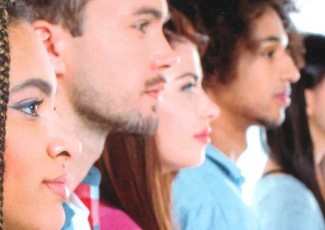Presentation of “Adopción en la adolescencia y juventud”, the first practical guide to support adoptive parents in the difficult adolescence stage
To this end, a meeting entitled “Una familia como otra cualquiera: cuando los adoptados y adoptadas llegan a la adolescencia” will be held with the participation of the author of this guide, psychology lecturer at the University of Deusto and family therapist,specialist in adoption, Félix Loizaga. This event will be held at 19:00 in the Ellacuría Room at Deusto’s CRAI Library and participants will include Deusto’s psychologist and lecturer Manuel Hernanz and the Basque Government teacher and adviser on education and adoption isues, Ana Francia.
Lecturer Félix Loizaga coordinates “Adoption en la adolescencia y juventud” along with other experts in Education or Psychology. Many of them are therapists and lecturers from several universities such as Deusto, Pontificia Comillas, Ramón Llull in Barcelona, Cádiz, Alicante and Basque Country. In addition to these studies and experiences, there are the voices of adopted children, of their fathers and mothers, and the associations that accompany and support them. They all throw light on this complex reality in the expectation that they will provide tools to bring parents and children closer throughout their biological, social and psychological change.
The book contains 22 analysis papers structured into four parts and each addresses key aspects of adopted adolescents from different perspectives. The first part, made up of six chapters, delves into the keys to undertanding the adoption phenomenon, fatherhood and motherhood and family complexity in the 21st century. The second, consisting of four papers, focuses on the life experiences and real stories of five adopted young people, the emotions and feelings in this stage and the reflections of their adoptive families. The six chapters of the third part describe emotional links and the way in which an integrated identity is formed within the new family. Finally, the fourth part contains six more papers devoted to the best practices developed in various fields: schools, associations, psychosocial care centres and films with proposals to deal with adolescents and families.
In addition to specialist reviews, there are voices like that of Adrian, aged 23, and other young people who provide evidence of the contradictions and concerns they have during their teenage phase: “I have a family who loves me, supports me and is there whenever I need them” he recognises, revealing his identity. Others, however, prefer to stay anonymous: «Why was I given in adoption? Was I a mistake? Did they have problems that prevented them from looking after me? »; «I just wanted to have a family. I needed a new start and a new opportunity»…Parents also share their deepest experiences and emotions: «We have two adopted children from Russia. We adopted them when they were 3 years old and 16 months old, respectively. They are biological brothers and although adaptation was rather difficult, little by little we started to mutually adapt and love one another »






